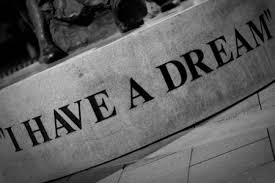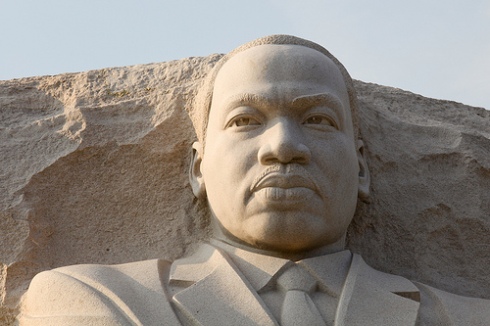On November 4th 2008, when Barack Obama was elected as America’s first African American President all racism died and in that moment “post racial America” gained solidarity. Granted, the kind of racism that was prevalent prior to the Civil Rights Movement is practically nonexistent today. However, racism has shifted and taken a new form for Generation Y Millennials to see – or not see. Today, America suffers from an underhanded, passive aggressive, sophisticatedly designed, dastardly kind of racism. The “post racial” racism America faces today comes in the form of gentrification, disproportionate and unfair treatment of minority ethnic groups in professional environments in addition to daunting unconstitutional laws, as well as inequitable media coverage, and many other nuances that one can easily overlook and not immediately see racism. It appears that some of those in Generation Y views the Civil Rights Movement’s success as absolute abomination of American racism. Many look at President Barack Obama and Attorney General Eric Holder as the living proof of this acclaimed “post racial” America. On the contrary, the right wing has grown more conservative since electing the first African-American family into the White House, with groups such as the Tea Party emerging, gaining momentum and having a presence in office.
Islamphobia was a term that came about shortly after September 11, 2001. Time magazine published an article in August 2010 titled, “Islamophobia: Does America Have a Muslim Problem?” during the time the mosque was proposed to be built near Ground Zero. In the article, it stated, “Attitudes toward Islam have worsened perceptibly in the past two years, perhaps because of a string of terrorism-related incidents involving American Muslims like the accused Fort Hood shooter Major Nidal Hasan and the would-be Times Square bomber Faisal Shahzad. Sami, the Iraqi immigrant in Dearborn, says he noticed a change in his neighbors’ attitude after the Times Square incident. “Two days later, I was loading some bags in my car, and one guy comes over and looks over my shoulder,” he recalls. “I saw the look in his eyes, and I knew what he was thinking.” Incidents like this continue to occur as just recently a bus operator in New York refused to let a 10-year-old Muslim boy on the bus because he assumed he was a terrorist. This is not “post racial” behavior.
Stop and Frisk laws is an example of unashamed legal injustice that invoke racial tensions. Stop and Frisk is a notorious tactic carried out by the NYPD, supported heavily by New York Commissioner Kelly, and now former mayor Michael Bloomberg, that was recently found unconstitutional by a Supreme Court. The tactic specifically targets African-Americans and Latino minorities to be selected to stop and frisk based on nothing more than their appearance with the intention of minimizing crime and confiscating illegal weapons.
Trayvon Martin was an African-American young man, gunned down and killed February 2012 by a Caucasian-Hispanic George Zimmerman in the State of Florida. It was roughly 60 days later, that charges were filed and an arrest was made. This case caught national and international attention simply because of those circumstances. Many people, including myself, were upset because it seems nearly impossible to fathom those same circumstances of the delayed arrest would have occurred had Trayvon Martin been the aggressor and George Zimmerman been the victim. After Zimmerman being found not guilty in June of last year, many people, especially myself experienced grave disappointment in the legal system and sadly
In more recent news, in Detroit, Renisha McBride is another recent example of a racially charged unfortunate crime. After being lost in an unfamiliar area Ms. McBride was fatally shot by a man, from whom she asked directions. Charges have not been filed and prosecutors are still investigating to see whether or not to file charges at all. Like Trayvon Martin, many are infuriated there has to be more evidence to charge someone for killing someone, accidental or not. According to Fox News Detroit, Yusef Shaker is an activist who said “Black life is not valued in America, not worthy, not respectable… Here was a woman who seeking help from potential danger and her life was taken… It’s a Trayvon Martin case all over again.”

The 50th Anniversary of the March on Washington recently took place this past August in which many political activists, elected officials and other prominent figures participated in continuing the dream of Martin Luther King Jr., and his associates. Many people were quoted to say it was a shame fifty years later we still have to march on Washington to protest equality and civil rights in America.
Voter Rights have been tampered with by conservatives significantly since 2008. It is not a coincidence after the election of the first African-American president was elected, states were eager to make it difficult for people to vote in the hopes to defeat “voter fraud”- specifically targeting African-Americans, Latinos and groups who supported President Obama. Section five (5) of the Voters Rights Act was recently voted out mostly by Republican congress men and women. Voters Rights was a major part of the 50th Anniversary of the March on Washington.

Other illustrations of clandestine racism is the “birther” movement that was orchestrated and unofficially led by Donald Trump that had many people believe President Obama was not a natural-born American citizen. It was an indirect, passive aggressive way to make sure everyone knew President Obama was “different” from every other President.
Lastly, the Prison Industrial Complex clearly shows disproportionate numbers between races regarding incarceration, sentencing and penalties. “The New Jim Crow”, written by Michelle Alexander discusses this topic in great detail, describing the Prison Industrial Complex as a new form of modern-day slavery. This book was published only just in 2010.
With these prime examples of racism one can easily deny America is somehow “post racial”. There are no longer separate water fountains, or specific seats on the bus for minorities to sit in, however, there is a good chance a Muslim person will be profiled as a terrorist. There are many more examples of racism in recent times such as the Paula Deen scandal, the recent Bank of America settlement for those racially targeted on mortgage applications, Although there is this misconception that successful minorities such as Barack Obama, Oprah and Jay-Z, just to name a few, discredit other disenfranchised minorities. Sadly, there is a good chance an African-American person will be shot and killed and their perpetrator will go unpunished. Unfortunately, it is likely that an African-American person will be sent to prison for a longer time than his Caucasian counterpart who committed the said crime. Profiling is the new face of racism and it by far not “post racial”. These instances exemplify modern-day sophisticated racism – underhanded, concealed racism that intends to hold minority groups socio-economically oppressed. Post Racial America will exist when racism is no longer socialized for the younger generations to see.


